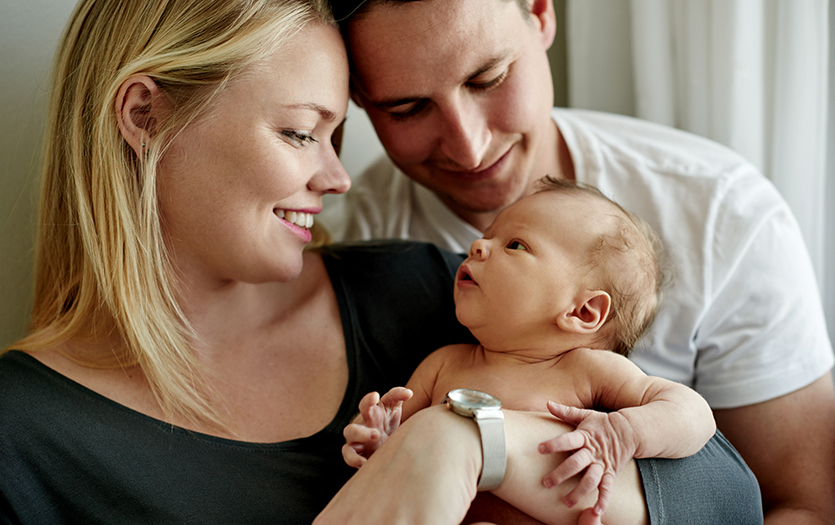
When you’re pregnant, you may create a picture in your mind of how life will be after your baby is born and you are home from the hospital. The picture in your head may not match the reality, especially if this is your first baby. It takes time to recover from childbirth, have your baby sleep more than an hour or two at a time, and feel like your normal self again. Having realistic expectations about life after a baby can help. Let’s take a closer look at three key areas where this applies.
Bonding with your baby
Many expectant moms look forward to the moment they gaze into their newborn’s eyes and fall instantly in love. But many things can disrupt the early bonding process, such as being separated from your baby, illness, fatigue or a difficult delivery. Your feelings for your baby will develop as you spend time together.
Breastfeeding provides that closeness to facilitate bonding. If you’re bottle feeding, simulate that closeness by holding your baby skin-to-skin. Massaging your baby is another activity that can help with bonding. If, after a few weeks, you still feel detached from your baby, talk to your physician. This can be a sign of postpartum depression, a condition more serious than “baby blues.”
Mood changes
You have been anticipating your baby’s arrival for months, possibly even years, so it’s normal to expect you will be happy all the time once your bundle of joy arrives. New moms often don’t anticipate how their moods may swing for the first few days or weeks after giving birth.
The “baby blues,” which can affect 70-80% of all new mothers, generally begin around day four or five after delivery and resolve within two weeks. During this time, expect periods of tearfulness and difficulty sleeping, as well as impatience or anxiety. You can blame your fluctuating hormones after delivery on the baby blues. If your mood swings last more than two weeks, or you have concerns over your mental health, talk to your physician.
Sleep
Newborns can sleep up to 16 hours a day; however, they usually don’t have a long sleep stretch at night. New parents may have unrealistic expectations about when their baby will finally allow them to sleep six to eight hours at a time. Most babies don’t sleep six to eight hours through the night until around two months of age.
Review these helpful articles for forming healthy habits and gathering resources to get a better night’s sleep:
Forming a healthy sleep routine for your baby
Safe sleep for you and your baby
Why do women struggle with sleep?
If, at any time, you have questions or concerns about your newborn or your postpartum wellness, speak to your pediatrician or a member of your care team.
Copyrighted material adapted with permission from Healthwise, Incorporated. This information does not replace the advice of a doctor.



